Home> Company News> Selecting the Right Hydraulic Pressure Compensator for Your Application
- AddressNo.9088 SHAHEXI ROAD, NANSHAN DISTRICT,SHENZHEN,CHINA
- Factory AddressNo.9088 SHAHEXI ROAD, NANSHAN DISTRICT,SHENZHEN,CHINA
- Worktime9:00-18:00
- Phone(Working Time)0531-85064681
- Phone(Nonworking Time)0531-85064681
- Fax0531-85064681
Hydraulic pressure compensators are an important component in hydraulic systems. These devices help to regulate pressure and maintain a consistent flow of fluid in the system. They work by adjusting the flow of fluid in response to changes in pressure, which helps to prevent damage to the system and improve efficiency.In hydraulic systems, pressure compensators are typically used to control pressure in systems with varying loads, such as lifting equipment or hydraulic presses. They can also be used to regulate pressure in systems with high flow rates, such as in mining or construction equipment.

Using the right hydraulic pressure compensator is critical for the safe and efficient operation of a hydraulic system. In this paper, we will discuss the different types of hydraulic pressure compensators, factors to consider when selecting a compensator, and common mistakes to avoid. We will also highlight the benefits of using the right hydraulic pressure compensator and provide tips for selecting the best one for your specific application.
Types of Hydraulic Pressure Compensators
Hydraulic pressure compensators come in different types to suit different hydraulic systems and applications. Each type has its own unique features, benefits, and drawbacks, which should be carefully considered when selecting the right one for your hydraulic system.
One common type of hydraulic pressure compensator is the pre-compensated compensator. This type of compensator maintains a constant flow rate by adjusting the pressure in the system before the flow reaches the control valve. Pre-compensated compensators are best suited for applications that require a constant flow rate, such as in machine tools and injection molding machines.
Another type of hydraulic pressure compensator is the post-compensated compensator. This type of compensator maintains a constant pressure in the system by adjusting the flow rate after it has passed through the control valve. Post-compensated compensators are best suited for applications that require a constant pressure, such as in presses and clamping systems.
A third type of hydraulic pressure compensator is the load-sensing compensator. This type of compensator monitors the load on the system and adjusts the pressure and flow rate accordingly. Load-sensing compensators are best suited for applications that require variable pressure and flow rates, such as in construction and agricultural equipment.
Other types of hydraulic pressure compensators include flow-sharing compensators, which distribute flow equally among multiple actuators, and pressure-reducing compensators, which lower the pressure of fluid going to specific actuators.
It's important to note that each type of hydraulic pressure compensator has its own set of advantages and disadvantages, and the choice of which one to use should be based on the specific needs and requirements of the hydraulic system.
Factors to Consider When Selecting a Hydraulic Pressure Compensator
When selecting a hydraulic pressure compensator for a hydraulic system, there are several factors to consider. The compensator must be able to handle the flow rate and pressure range of the system, as well as the type of fluid used in the system. The operating temperature and environmental conditions must also be taken into account, as these can affect the performance of the compensator. Additionally, the required response time and accuracy of the compensator should be considered to ensure that it will function properly in the system.
It's important to note that not all hydraulic pressure compensators are created equal, and different compensators may be better suited for different applications. For example, a pre-compensated compensator may be better for applications where the system pressure is consistent, while a load-sensing compensator may be better for applications where the system pressure varies.
By taking the time to carefully consider all of these factors and match the right hydraulic pressure compensator to the specific application, system performance can be optimized and wear and tear on system components can be reduced.
Matching the Hydraulic Pressure Compensator to Your Application
When it comes to selecting the right hydraulic pressure compensator, there are several factors that must be considered. The following are some of the key considerations to keep in mind:
-
Flow rate and pressure range of the hydraulic system: The flow rate and pressure range of the system are crucial in determining the right hydraulic pressure compensator. The compensator should be able to handle the flow rate and pressure range of the system without any issues.
-
Type of fluid used in the system: The type of fluid used in the system can also impact the selection of the hydraulic pressure compensator. Different fluids have different viscosities, which can affect the performance of the compensator. It's important to choose a compensator that is compatible with the fluid being used in the system.
-
Operating temperature and environmental conditions: The operating temperature and environmental conditions of the hydraulic system can also impact the selection of the hydraulic pressure compensator. Some compensators may be better suited for high-temperature environments, while others may be better suited for low-temperature environments. Additionally, compensators that are exposed to harsh environmental conditions may require additional protection or specialized coatings.
-
Required response time and accuracy: The required response time and accuracy of the hydraulic system can also impact the selection of the hydraulic pressure compensator. For systems that require a high degree of accuracy or a rapid response time, it may be necessary to choose a compensator that is specifically designed to meet these requirements.
Overall, selecting the right hydraulic pressure compensator requires careful consideration of the specific requirements of the hydraulic system. By taking into account factors such as flow rate, pressure range, fluid type, operating temperature, and response time, it is possible to choose a compensator that will provide optimal performance and efficiency for the system.
Benefits of Using the Right Hydraulic Pressure Compensator
The use of the right hydraulic pressure compensator in hydraulic systems can offer numerous benefits in terms of performance, efficiency, and safety. Here are some of the key advantages of using the right hydraulic pressure compensator:
-
Increased efficiency and accuracy: A hydraulic pressure compensator helps maintain a consistent pressure level in the hydraulic system, which leads to improved efficiency and accuracy. It ensures that the system operates at optimal pressure levels, reducing the risk of system failures and improving the overall performance.
-
Reduced wear and tear: By ensuring that the hydraulic system operates at optimal pressure levels, the right hydraulic pressure compensator can reduce the wear and tear on system components. This can help extend the lifespan of the system and reduce maintenance costs.
-
Improved safety: Hydraulic systems that operate at the wrong pressure levels can pose safety risks, including the risk of system failures and accidents. The use of the right hydraulic pressure compensator can help mitigate these risks and improve the safety of the system.
-
Increased productivity: When hydraulic systems operate at optimal pressure levels, they are more efficient and can perform tasks more quickly. This can lead to increased productivity and profitability in various industries.
-
Enhanced reliability: The right hydraulic pressure compensator can help ensure that the hydraulic system operates consistently and reliably. This can help prevent unexpected downtime and system failures, improving the overall reliability of the system.
Overall, using the right hydraulic pressure compensator in hydraulic systems can provide numerous benefits, including increased efficiency, reduced wear and tear, improved safety, increased productivity, and enhanced reliability.
Common Mistakes to Avoid When Selecting a Hydraulic Pressure Compensator
When selecting a hydraulic pressure compensator, there are some common mistakes that should be avoided. These mistakes can lead to improper selection and installation of the compensator, which can result in poor system performance and potential damage to the hydraulic system.
One of the most common mistakes is overlooking important factors when selecting a compensator. It is essential to carefully consider factors such as flow rate, pressure range, and fluid type, as well as the operating temperature and environmental conditions. If any of these factors are not properly accounted for, the compensator may not work effectively in the hydraulic system, leading to issues such as pressure spikes or inadequate flow.
Another common mistake is misunderstanding the application requirements. Each hydraulic system has specific requirements and constraints, and it is important to understand these before selecting a compensator. If the wrong compensator is selected, it may not meet the system's needs and result in reduced efficiency, increased wear and tear, and potential damage to the system components.
Finally, it is important to consult with an expert in hydraulic systems when selecting a compensator. Hydraulic systems can be complex, and it can be challenging to properly select and install a compensator without the necessary expertise. An expert can provide valuable guidance and ensure that the compensator is properly matched to the system's needs, helping to avoid potential issues down the line.
By avoiding these common mistakes, it is possible to select the right hydraulic pressure compensator for your system and ensure optimal performance and reliability.

Hydraulic pressure compensators are an essential component of hydraulic systems, ensuring that the correct amount of pressure is maintained at all times. However, selecting the wrong compensator for your system can lead to inefficiency and even damage to system components. In this section, we will discuss some common mistakes to avoid when selecting a hydraulic pressure compensator.
- Overlooking Important Factors
When selecting a hydraulic pressure compensator, it's crucial to consider all factors that may affect the performance of your system. Overlooking important factors, such as flow rate and pressure range, can lead to the wrong compensator being selected. This can result in a system that either operates inefficiently or does not work at all.
- Misunderstanding Application Requirements
Another common mistake is misunderstanding the application requirements for the hydraulic pressure compensator. Each application has specific requirements, and not all compensators are suitable for all applications. For example, a pre-compensated compensator may not be suitable for applications that require rapid response times.
- Not Consulting with an Expert
Hydraulic systems are complex, and selecting the right hydraulic pressure compensator requires a good understanding of the system and its components. It's essential to consult with an expert in hydraulic systems before selecting a compensator. They can provide valuable insights and help ensure that the correct compensator is selected for your system.
By avoiding these common mistakes, you can ensure that the correct hydraulic pressure compensator is selected for your system, leading to increased efficiency, reduced wear and tear on system components, and improved safety and reliability.


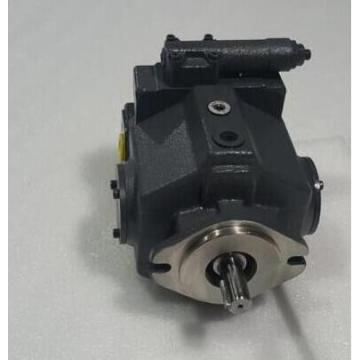 KAWASAKI K3V63DT PISTONS
KAWASAKI K3V63DT PISTONS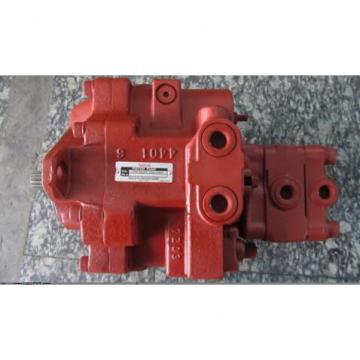 KAWASAKI K3V112DT CYLINDER BLOCK AND R.H. PLATE
KAWASAKI K3V112DT CYLINDER BLOCK AND R.H. PLATE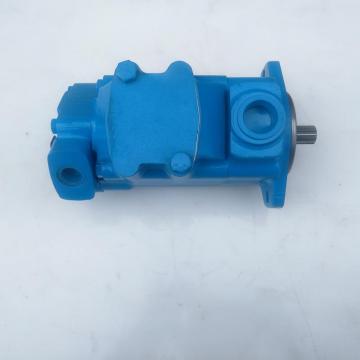 KAWASAKI K3V140DT SHOE PLATE FOR HYDRAULIC OR HYDROSTATIC EXCAVATOR
KAWASAKI K3V140DT SHOE PLATE FOR HYDRAULIC OR HYDROSTATIC EXCAVATOR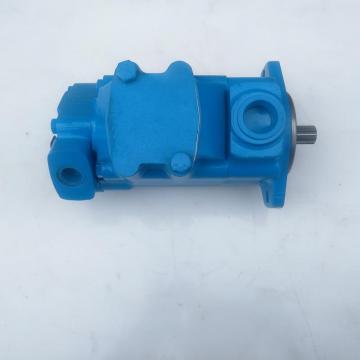 KAWASAKI K3V140DT RIGHT HAND ROTATING GROUP FOR HYDRAULIC EXCAVATOR
KAWASAKI K3V140DT RIGHT HAND ROTATING GROUP FOR HYDRAULIC EXCAVATOR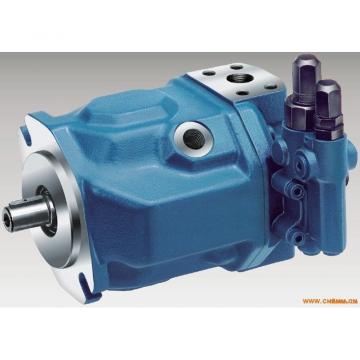 KAWASAKI K3V63DT CYLINDER BLOCK AND L.H. PLATE FOR HYDRAULIC EXCAVATOR
KAWASAKI K3V63DT CYLINDER BLOCK AND L.H. PLATE FOR HYDRAULIC EXCAVATOR